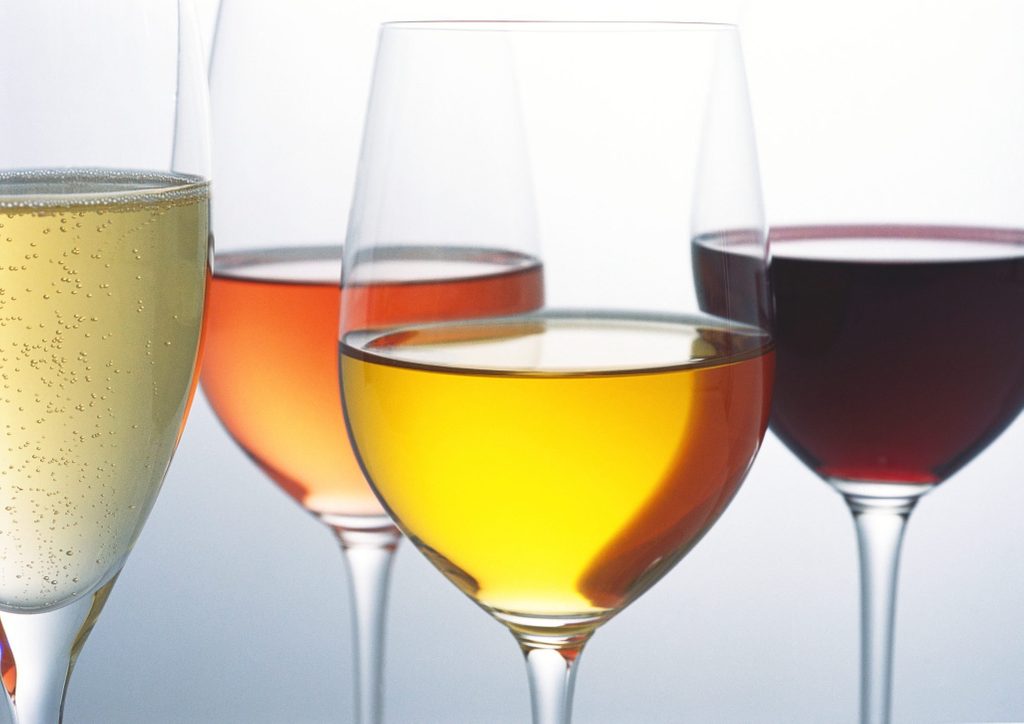Why Does Wine Give Me a Headache?

If a glass of vino leads to a throbbing noggin, you're not alone. Here's why wine gives some people headaches—and what you can do about it.
Does your head start pounding after a glass or two of wine? Or do you expect to wake up with a migraine after splitting a bottle of wine with friends on a Friday night? You’re not alone.
“Wine headaches and headaches from any alcohol are a common complaint,” says Hélène Bertrand, MD, CM, a Vancouver-based family physician and scientific researcher focused on pain management.
Some people are also “wine-sensitive,” according to Marquita Williams, a board-certified family nurse practitioner who practices at Methodist South Hospital and Revenge Body Bar MedSpa in Memphis, Tennessee. She notes that differing sensitivity means that wine-triggered headaches can last from 30 minutes to three hours, all depending on the person.
(Related: Am I Having a Headache or a Migraine? And More Migraine Questions, Answered)
Why wine causes headaches
There are several ways a glass or two of wine could trigger or contribute to a headache. Perhaps you metabolize alcohol differently than most people due to a genetic difference. For example, there are variations in a gene known as aldehyde dehydrogenase 2 (ALDH2)—common in East Asian populations—that can inhibit the normal metabolizing of alcohol. This gene is also responsible for why some people’s faces turn red when drinking.
More common reasons include dehydration or increased histamine levels—a chemical that your body makes when you have allergies that also jumpstarts the release of stomach acid to aid digestion. Headaches could also be due to sensitivity to certain compounds in certain wines, such as “tyramine, phenylethylamine, sulfates, and flavonoid phenols,” says Ronnie Bowen, MD, a family physician at Family First Healthcare in Memphis.
Headaches from dehydration
The timing of your headache could hint at the cause. If your head starts to throb immediately after drinking a glass of wine, the cause might be pressure from vasodilation—dilated blood vessels related to intoxication. “Vasodilation can explain the immediate headache…but it really doesn’t explain the delayed headache,” Williams says.
Hangover headaches can be explained through dehydration, says Williams. About 50 to 75 percent of your body weight comes from water. When you don’t get enough fluids or expel fluids too quickly, you can become dehydrated. Headaches are a common symptom of dehydration.
“Alcohol acts as a diuretic,” explains Williams. Diuretics cause the kidneys to expel excess fluids, depleting your salt and water stores more quickly. “Losing more fluid than [you’re] taking in can be dangerous. The body needs water to perform its most critical functions,” she says.
Dr. Bertrand agrees. “You need to drink water when you’re drinking alcohol,” she cautions.
(Related: 9 Things That Happen to Your Body When You Get a Full 8 Glasses of Water)
Headaches from by-products of alcohol fermentation
Specific wine ingredients can also trigger headaches, says Dr. Bowen. These include tyramine, an amino acid produced by fermentation, and tannins, the polyphenols responsible for the dry mouth feel in many red wines and teas. Note: Red wines tend to have more tannins than white wines.
“Many of them can also be found in foods that we consume. The amounts in different alcohols can vary, and this could possibly be the reason why one may have a headache with certain alcohols versus other alcohols,” Dr. Bowen says.
“Tannins also tend to release serotonin in high levels, which could cause headaches,” says Williams, then adds that studies are still inconclusive on the exact relationship between these ingredients and headaches.
Tips to avoid wine headaches
Dr. Bertrand’s advice is simple: “The No. 1 way to avoid the headache is to not drink too much alcohol.” For women, that means no more than one drink a day, according to the Centers for Disease Control and Prevention; for men, it’s two drinks.
The medical experts caution against attempts to “build up” a higher wine tolerance. “It only means you will have to drink more and more wine to feel good. It never prevents a hangover,” Dr. Bertrand says.
(Related: Home Remedies That Will Make Your Headache Disappear)
Choosing a wine that works for you
A study published in the International Journal of Sport Nutrition and Exercise Metabolism suggests that low-alcohol beer paired with sodium greatly reduces the risk of dehydration while participating in social drinking. If you think your wine headache is the result of dehydration or excessive drinking, try these alcohol-free wines or non-alcoholic sparkling wine.
By experimenting with a variety of wines, you might find that certain ingredients trigger your headaches. Compare how you feel after drinking a glass of dry red wine (higher in tannins) versus a sauvignon blanc or rosé (less tannic).
“Some people are allergic to what wine contains like sulfites, histamine, anthocyanins, or tannins. Different wines have different amounts of these,” Dr. Bertrand says. “Obviously, if you react to a certain wine, avoid it.”
When to see a doctor
Experts agree that headaches after drinking wine are quite common. If you experience a headache immediately after drinking wine, experts recommend to hydrate immediately with water, take an over-the-counter pain reliever, and lie down in a dark area for a few minutes. Note: If you decide to take a pain reliever, make sure you read the label carefully as mixing with alcohol can be dangerous in certain instances.
Dr. Bertrand adds that if your wine-triggered headaches are concerning, try switching the type of wine you drink or reducing your wine consumption. She cautions that drinking too much alcohol of any kind can damage your brain, liver, and heart. It can also increase your risk of cancer. “If the headaches don’t stop, then cut back the amount of alcohol you’re drinking and definitely see a doctor,” she says.




